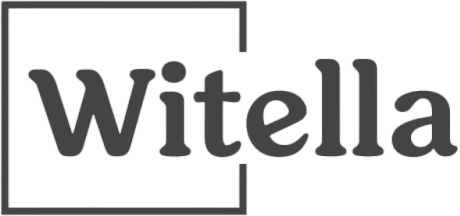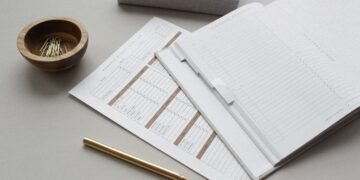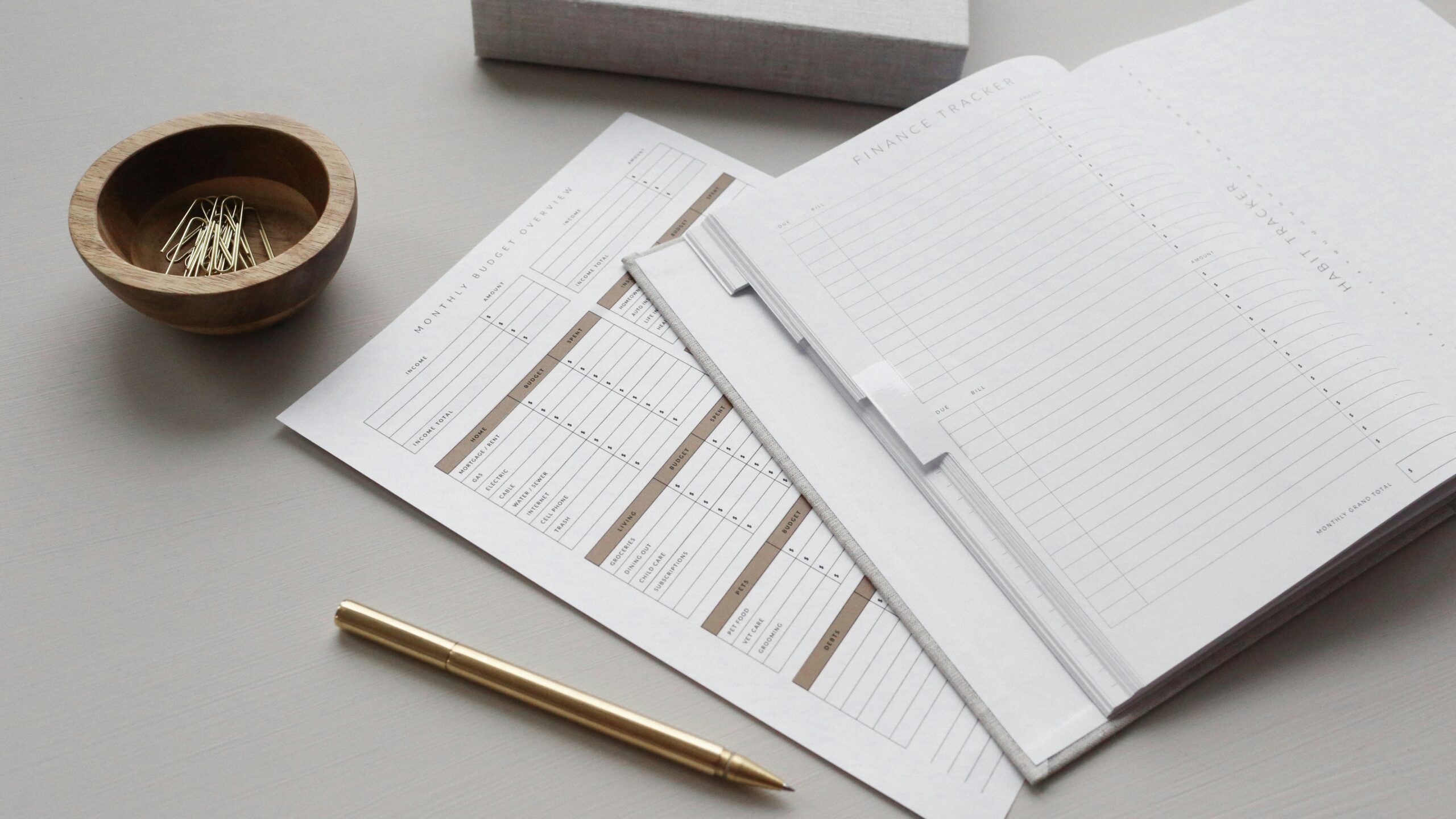Here’s how you can learn to master your finances. In this article, we take a look at the concept of budget planner books and see how these handy tools can help improve your money management. Find out how expert tips, sagely insights, and useful strategies can get you to take control of your finances and financial goals.
Budget planner books are financial tools that make managing finances and achieving your savings easier. These books provide a structured system for tracking your income and expenses, creating budgets, and monitoring your progress. Easily, a budget planner book makes developing smart money management habits and gaining control over your financial life very doable. Doesn’t matter if you’re a beginner. On the contrary, maybe you just want to improve your budgeting skills. So, is a budget planner book that long overlooked tool you should consider?
Key Takeaways:
- A budget planner book is a must have for keeping your finances in check and achieving your savings goals.
- These books provide a structured system for tracking income and expenses, creating budgets, and monitoring progress.
- By using a budget planner book, you can develop smart money management habits and gain control over your financial life.
- A budget planner book is suitable for beginners and those looking to improve their budgeting skills.
- Investing in a budget planner book is a valuable way to support your financial goals.
What Is a Budget Planner Book
Are you tired of feeling overwhelmed by your finances? Say goodbye to money stress. Instead, consider adding a budget planner book to help with your financial planning. Packed with easy-to-use tools and expert guidance, our review of a budget planner will help you take control of your money and achieve your financial goals.
Success Becomes Easier with the Right Budgeting Tools
Budgeting is a basic you should know if you are to get anywhere near financial stability. So, having the right tools within reach can make it that much easier to achieve your money goals. In this budget planner book article, you’ll find a range of its effective features for streamlining your budgeting process which will set you up for success.
Income and Expense Trackers
Put simply, budgeting is to know your cash flow like the back of your hand. How much money exactly is coming in and going out every month? A budget planner should have user-friendly income trackers (for income and expenses) that allow you to monitor your cash flow. Being able to jot down your income and expenses easily, helps you pinpoint areas where you could be overspending. This way, it makes it easier for you to adjust your spending habits.
Savings Goals Tracker
Saving money can be challenging, especially if you don’t have specific goals in mind. A budget planner book features a savings goals tracker that helps you set and track progress towards your financial objectives. Doesn’t matter if you’re saving for a holiday, another car, or a rainy day, being clear on your savings plan can keep you feeling positive and organised so that you will accomplish all your financial goals.
Category Breakdown
Categorising is important mainly because it gives you the visibility that you need. This applies to any kind of plan but in the case of creating and maintaining an effective budget, categories come into important play. With a budget planner, you can easily keep different kinds of expenses into categories. For example, utilities, groceries, weekend fun, educational materials and more. When you categorise how you spend your money, it becomes easier to clearly see in which areas you’re overspending. Categorising also keeps you on track with your savings.
Transaction Tracker
Keeping track of your transactions is key to staying on top of your budget. With a user-friendly transaction tracker, you can record every purchase, payment, and transfer. A tracker makes sure that you have a clear picture of your financial activity at all times. By regularly reviewing your transactions, you can spot any discrepancies or fraudulent charges and take action to protect your finances.
Annual Savings Goal Tracker
Setting long-term savings goals should be your number one priority for building wealth and achieving financial security. A budget planner book includes an annual savings goal tracker that allows you to set realistic savings targets for the year ahead. Doesn’t matter what you’re saving up for, sticking to your budget or financial plan is just much better when you use a tracker.
Budgeting tools, like any kind of tool, are something you should leverage for making things easier. This includes self-improvement in the finance department. So, think again if you need a budget planner book as you work on your plans of financial success.
Effective Budgeting Tools for Improving Finances and Tracking Your Progress
Budgeting is the first thing you should work on when thinking of financial stability. Hence, having the right tools and methods in place can significantly impact your success when it comes to money management. With a budget planner book, you can expect a comprehensive set of budgeting tools. Furthermore, these are tools that will transform your financial endeavour.
Income and Expense Trackers: How They Help
Understanding your cash flow is crucial for effective budgeting. Income and expense trackers provide a clear overview of your finances, allowing you to see exactly how much money you’re bringing in and where it’s being spent.
Transaction Tracker
Keeping track of every transaction. It’s one of the best things you can do for your budget. A transaction tracker makes it easy to record all your purchases, payments, and transfers, ensuring that you have a complete picture of your financial activity. By regularly reviewing your transactions, you can spot any discrepancies or fraudulent charges and take action to protect your finances.
Savings Goals Tracker
Setting savings goals is a fundamental part of financial planning. A budget planner includes a savings goals tracker that allows you to set achievable savings targets and track your progress over time. Whether you’re saving for a holiday, a new car, or an emergency fund, a tracker helps you stay motivated and focused on reaching your goals.
Monthly Overview
A budget planner book provides a monthly overview of your finances, including income, expenses, and savings. With a clear snapshot of your financial situation each month, you can quickly identify any areas that need attention and make adjustments to stay on track with your budgeting goals.
Many use budgeting tools so they can regularly track their progress. Budgeting tools also help with keeping your finances in control and bring you closer to where you want to be financially.
Special Considerations for Your Budget Planner Book
In the end, whether you should go with a budget planner book comes down to your needs and personality. The budget planner book characteristics below are a few things to think about before getting one for yourself.
Stay Organised on the Go
Take your budget planner with you wherever you go with the convenient accessories included. One like a Budget Accordion File is perfect for keeping coupons, receipts, cash, and more organised on the fly. Plus, the Snap-In Monthly Bill Tracker Dashboard fits seamlessly into any planner or notebook, so you can track your bills and savings wherever life takes you.
Customisable and Versatile
Not a fan of rigid structures? A budget planner book offers plenty of flexibility to suit your unique needs. With custom Monthly Planners and extra productivity pages, you can tailor your budgeting experience to fit your lifestyle. Plus, extras like budget stickers add a fun and creative touch to your financial planning, making it easier than ever to stay motivated and inspired.
How to Make a Budget Work to Your Advantage
Creating a budget that works for you involves understanding your income and expenses. Start by determining your monthly income from various sources and taking stock of all your regular expenses. This will give you a clear picture of your financial means and help you identify areas where you can cut back or optimise spending. With the right budgeting techniques, such as the 50/30/20 rule, you can create a budget that allows you to live comfortably within your means and save for future goals.
The Ideal Budget Planner Book: Understand Income & Expenses
When creating a budget, it’s important to have a clear understanding of your income. Take into account your salary, any additional sources of income, and any regular payments you receive, such as dividends or rental income. Factor in any tax deductions or withholdings to calculate your net income.
Example: If you earn $4,000 per month after taxes, your net income would be $4,000.
Next, list out all your regular expenses. These may include rent or mortgage payments, utility bills, groceries, transportation costs, debt repayments, and any other recurring expenses you have. Be thorough and include all necessary expenses to get an accurate representation of your spending.
Example:
| Expense Category | Monthly Cost |
|---|---|
| Rent/Mortgage | $1,200 |
| Utilities | $200 |
| Groceries | $300 |
| Transportation | $150 |
| Debt Repayments | $500 |
| Other | $250 |
Once you have your income and expenses listed, it’s time to create your budget. A well-known approach to budgeting, the 50/30/20 rule segregates your earnings into these groups: essential expenses, wants, and savings.
- Essential Expenses (50%): This category should include your rent or mortgage payment and any other necessary expenses. These are the expenses you need to cover to maintain a basic standard of living.
- Wants (30%): This category includes expenses that are not essential but still important to you. It can include dining out, entertainment, shopping, and other discretionary spending.
- Savings (20%): This category focuses on saving for your future goals. It can include contributions to retirement accounts, emergency funds, and other long-term savings.
Example:
| Category | Amount (%) | Amount ($) |
|---|---|---|
| Essential Expenses | 50% | $2,000 |
| Wants | 30% | $1,200 |
| Savings | 20% | $800 |
By following the 50/30/20 rule, you can ensure that you’re prioritising your essential expenses while still allowing for discretionary spending and saving for the future. It provides a balanced approach to budgeting, making it easier to decide how to spend your income.
Remember, the key to making a budget that works for you is to customise it according to your individual circumstances and goals. This may mean having to readjust your budget as you go along. Possibly a hassle at first, once you find the right method suited to your needs, sticking to your financial goals should be much easier.
Best Tips and Tools for Budgeting
When it comes to budgeting, there are various tips and tools that can help you stay on track. Consider using personal finance software or apps to manage your accounts and track your budgets. These tools can automate transactions, provide insights into your spending habits, and even sync with your bank accounts. Examples include:
- Finance Planner: Utilise dedicated finance planner applications or software to keep your budget organised and easily accessible.
- Money Management Diary: Keep a money management diary to record your income, expenses, and progress towards your savings goals.
- Budget Organiser Journal: Use a budget organiser journal to create budget categories, track your spending, and identify areas where you can make adjustments.
- Budget Tracker Notebook: Utilise a budget tracker notebook to monitor your income and expenses, create budgets, and stay accountable to your financial goals.
Additionally, using a paper budget planner can be a tactile and fun way to keep track of your income and expenses. Consider the benefits of a budget planner notebook:
| Benefits of a Budget Planner Notebook |
|---|
| 1. Easy to Use: A budget planner notebook provides a user-friendly layout that simplifies the budgeting process. |
| 2. Portable: Take your budget planner notebook with you wherever you go, ensuring you can manage your finances on the go. |
| 3. Visualise Your Progress: Track your income, expenses, and savings visually with charts and graphs in your budget planner notebook. |
| 4. Stay Motivated: Seeing your progress and goals in a physical form can help you stay motivated and committed to your budgeting journey. |
Working with a spouse, partner, or an accountability partner can also provide support and accountability in your budgeting journey. Share your goals, budgets, and progress with someone you trust to stay on track and maintain financial discipline.
The Benefits of Using a Budget Planner Book
Using a budget planner book has several benefits. Firstly, it helps you stay organised by providing dedicated spaces to track your income, expenses, and savings. This can prevent overspending and ensure that you allocate funds for necessary expenses and savings goals. Additionally, budget planner books often have sections for setting financial goals, creating budgets, and tracking progress, which can keep you motivated and accountable. Finally, budget planner books are often affordable and accessible, making them a cost-effective tool for managing your finances.
| Benefits of Using a Budget Planner Book |
|---|
| Stay organised |
| Prevent overspending |
| Allocate funds effectively |
| Motivate and accountability |
| Affordable and accessible |
The Role of Automation in Budgeting
Automation is fast becoming today’s norm for effective budgeting. By leveraging technology and utilising features offered by budgeting apps, you can streamline your budgeting process and gain better control over your money. Whether you’re tracking expenses, monitoring savings, or managing your finances, automation can save you time and effort.
Automatic Bank Updates and Transaction Categorisation
One of the key benefits of automation is the ability to automatically update your bank transactions and categorise them. Budgeting apps can sync with your bank accounts, fetching transaction data in real time. This eliminates the need for manual data entry and ensures that your expenses are accurately tracked.
Receipt and Warranty Tracking
Many budgeting apps offer the functionality to attach receipts to your transactions. This feature allows you to keep a digital record of your receipts. Additionally, some apps can also track warranties, ensuring that you have all the necessary information about your purchases in one place.
Geo-Mapping Transactions
Another useful feature provided by budgeting apps is geo-mapping transactions. This feature uses the location data of your transactions, providing a visual representation of where you spend your money. Not only does it show your spending patterns, but through these patterns, you will know how to better spend your funds.
Exports to CSV/XLS/PDF Formats
If you prefer to analyse your budget data in spreadsheet or PDF formats, many budgeting apps offer the option to export your data. This feature allows you to further analyse your expenses, create custom reports, or share your budgeting information with others.
Seamless Integration of Financial Accounts
Automation enables the seamless integration of different financial accounts into a single platform. This provides a holistic view of your finances, allowing you to monitor multiple accounts simultaneously. Whether it’s your bank accounts, credit cards, or investment portfolios, having all your financial information in one place simplifies expense tracking and money management.
| Key Benefits of Automation in Budgeting |
|---|
| Time efficiency: Automation saves you time by eliminating manual data entry |
| Accurate expense tracking: Automatic bank updates and transaction categorisation ensure accurate expense tracking |
| Digital record keeping: Receipt and warranty tracking features eliminate the need for physical paperwork |
| Insights and decision-making: Geo-mapping transactions help identify spending patterns and make informed budgeting decisions |
| Data flexibility: Exports to CSV/XLS/PDF formats allow for further analysis and customisation of budget data |
| Centralised financial view: Seamless integration of financial accounts provides a holistic view of your finances |
By utilising automation tools and features offered by budgeting apps, you can simplify your budgeting process and achieve better financial management. These tools enhance your ability to track expenses, monitor savings, and make informed decisions about your money. Embrace the power of automation and take control of your budget today.
Maximising Savings with a Budget Planner Book
A budget planner book helps you achieve your financial goals and maximise your savings. It provides a structured framework for setting financial goals and tracking your progress, allowing you to make informed decisions about your spending and prioritise saving. By creating and sticking to a budget, you can identify areas where you can cut back on expenses and allocate more money towards your savings.
Better Savings: Benefits of Budget Planner Books
One of the key advantages of using a budget planner book is the ability to monitor your expenses. This awareness enables you to make adjustments and eliminate unnecessary spending, thereby freeing up more funds for saving. The budget planner book serves as a visual representation of your financial journey, allowing you to track your progress and celebrate milestones along the way.
Furthermore, a budget planner book helps you stay motivated and accountable. By regularly recording your income and expenses, you develop a habit of actively managing your finances. The act of writing down your financial activities keeps things in perspective and your eye on long-term objectives. This increased awareness and accountability greatly enhance the likelihood of reaching your savings targets.
When choosing a budget planner book, consider one that aligns with your personal preferences and needs. There are various options available, including financial planning diaries, money management workbooks, finance tracker notebooks, and budgeting organisers. Select a format that resonates with you and makes it easy for you to stay organised and engaged with your financial planning.
“A budget planner book is like a roadmap for your finances. It guides you towards your savings goals and empowers you to take control of your financial future.”
In summary, a budget planner book is a multifunctional way to maximise your savings. By providing a structured framework for setting goals, tracking progress, and staying accountable, it allows you to make informed financial decisions and prioritise saving. Choose a budget planner book that suits your style and start on your journey to financial success.
Conclusion
In conclusion, a budget planner book is an essential tool for anyone looking to take control of their finances and achieve their savings goals. By following the steps outlined in this article and utilising the tips and tools mentioned, it will be easier to find a budget tailored for you which will make you better at financial decision-making. Whether you prefer digital or paper-based solutions, there are options available to suit your needs. Start your journey to financial freedom today with a financial planning guide like a budget planner book, an expense tracking journal, or a personal finance tracker.
With the help of a budget planner book, you can keep track of your income and expenses and allocate funds towards your savings goals. Moreover, a budget planner book enables you to monitor your progress and stay accountable to your financial objectives. By being mindful of your financial choices and actively managing your budget, you will be able to make informed decisions and stay on track towards your financial goals.
Becoming better at financial planning is a lifelong process, one that needs your discipline and commitment. Regularly reviewing and adjusting your budget is necessary to adapt to changes in your income, expenses, and financial goals. By consistently using a budget planner book, whether it’s a printed journal or a digital tracker, you’ll be better able to assess your financial weaknesses and make empowered choices to secure your financial future. Take control of your money today and unlock the potential of your financial journey.
More on Financial Growth
If you’re interested in other ways to grow your financial portfolio, find out more about gold trading here: Mastering the Gold Market: A Gold Exchange Venture.
FAQ 1: Budget Planner Book
A budget planner book is a tool that helps you manage your finances and achieve your savings goals. It provides a structured system for tracking income and expenses, creating budgets, and monitoring your progress.
To make a budget that works for you, start by understanding your income and expenses. Determine your monthly income from various sources and take stock of all your regular expenses. Use budgeting techniques, such as the 50/30/20 rule, to create a budget that helps you spend wisely and build your way towards achieving your goals.
Consider using personal finance software or apps to manage your accounts and track your budgets. These tools can automate transactions, provide insights into your spending habits, and sync with your bank accounts. Additionally, using a paper budget planner can be a tactile and fun way to keep track of your income and expenses. Working with a spouse, partner, or accountability partner can also provide support and accountability.
FAQ 2: Budget Planner Book
Using a budget planner book helps you stay organised by providing dedicated spaces to track income, expenses, and savings. It prevents overspending and ensures funds are allocated for necessary expenses and savings goals. Budget planner books often have sections for setting financial goals, creating budgets, and tracking progress, keeping you motivated and accountable. They are also affordable and accessible.
Automation plays a significant role in effective budgeting. Utilise technology, such as automatic bank updates and transaction categorisation, to save time and effort in tracking expenses. Budgeting apps offer features like receipt and warranty tracking, geo-mapping transactions, and exports to various formats. Automation allows for seamless integration of different financial accounts, providing a holistic view of your finances and simplifying expense tracking.
A budget planner book provides a framework for setting financial goals and tracking progress. By monitoring expenses and making informed decisions, you can prioritise saving objectives. Budget planner books also keep you motivated and accountable, increasing the likelihood of reaching your savings targets.





























